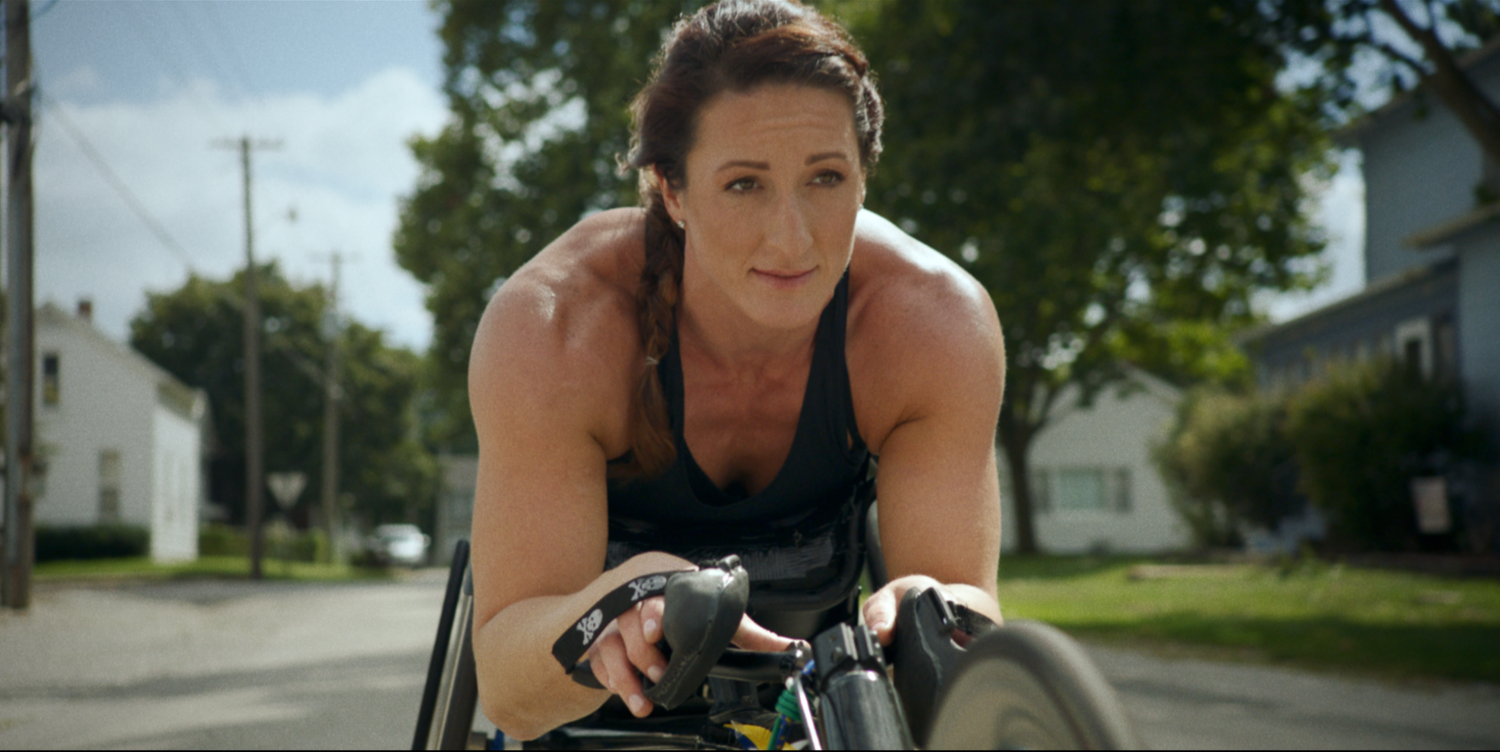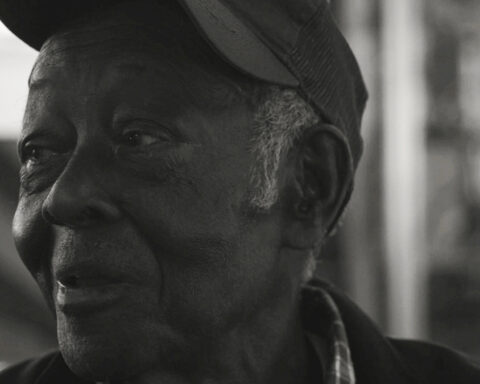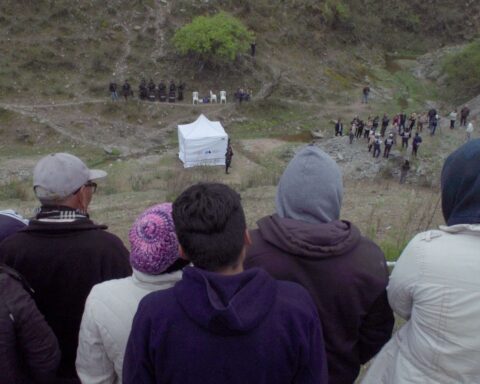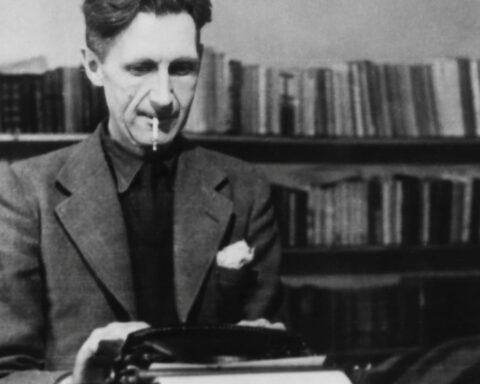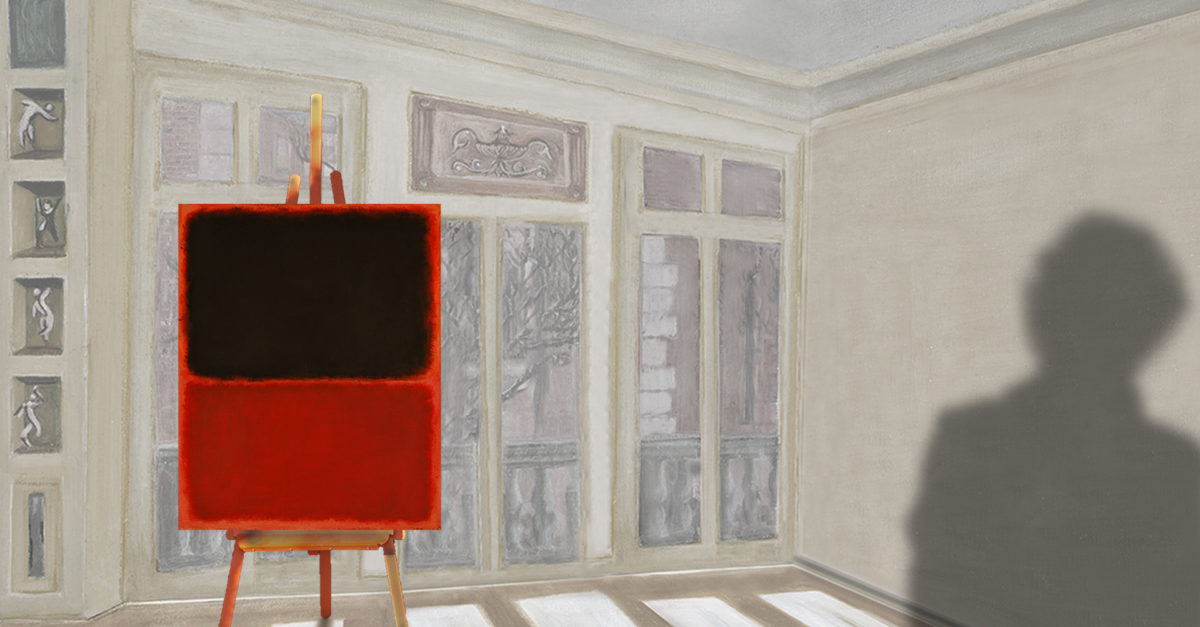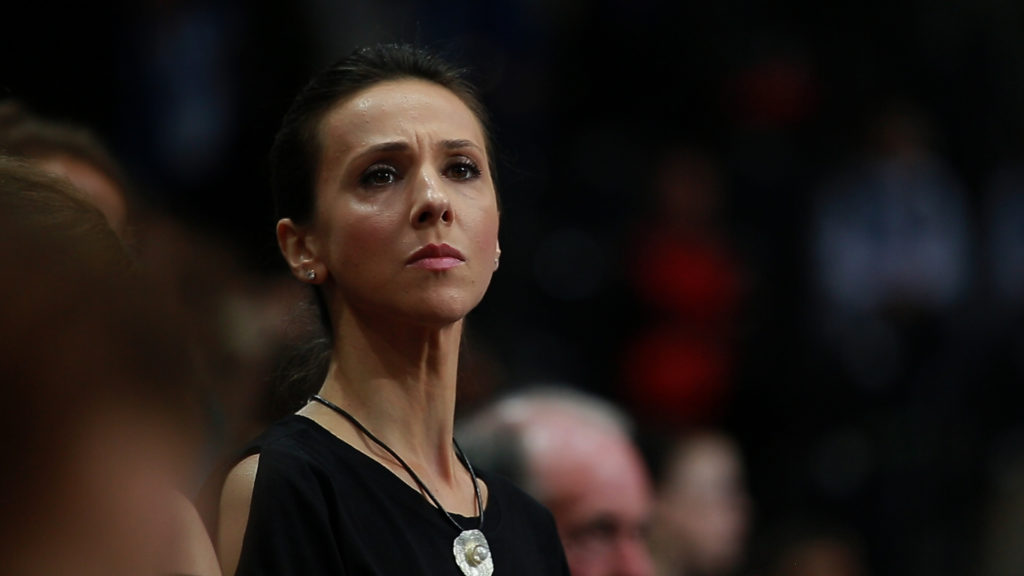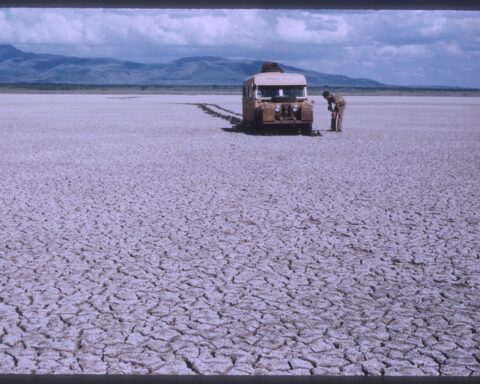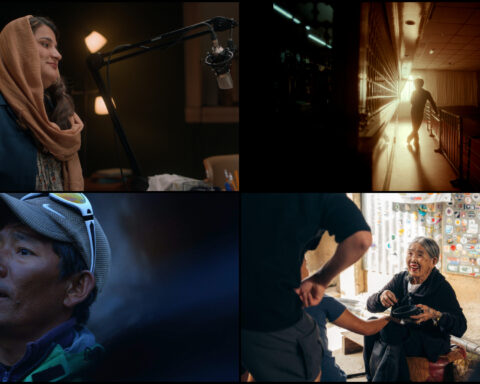Tatyana McFadden can rightly claim to be the fastest woman in the world. With an astonishing 17 Paralympic medals to her name (seven of which are gold), five gold medals in the New York City marathon, and a whopping 13 IPC World Championship gold medals, among other honours, the 31-year-old McFadden is living proof that nobody should let the status quo prevent her from pursuing her passions. The Russian-born American athlete is one of several Paralympians taking centre stage in Netflix’s new documentary Rising Phoenix from directors Ian Bonhôte and Peter Ettedgui (McQueen). Her narrative arguably provides the most compelling arc of this inspiring film.
McFadden, who also serves as a producer for Rising Phoenix, brings to life her spirit for athleticism and activism as she shares the thrill of going for gold on the track. McFadden, who was born with spina bifida, which paralysed her from the waist down, speaks about her supportive adoptive parents who fought alongside her so that she could excel on the racetrack. She embodies the spirit of the Paralympic Games as Rising Phoenix parallels the history of the event with the personal quests of the athletes in the film. Bonhôte and Ettedgui’s film unpacks the Paralympic Games hard-fought battle for visibility and equity with a segment on the 1980 Russian Olympic Games proving especially effective as the nation forwent the Paralympic Games, saying there were no people with disabilities in Russia. When McFadden returns to Sochi in the film and wins a silver medal with both her adoptive and birth parents by her side, the event is more than just a homecoming: it’s a stirring reminder that every victory in the Games leads to greater strides in visibility, representation, and equality more broadly.
POV spoke with McFadden ahead of the release of Rising Phoenix to discuss her career on the track, her role as an activist, and training for the next Paralympic Games under COVID-19 lockdowns.
POV: Pat Mullen
TM: Tatyana McFadden
This interview has been edited for brevity and clarity.
POV: Jonnie Peacock says in Rising Phoenix that it’s important for discussions about Paralympians to focus on the sport instead of the athletes’ stories [i.e.: their disabilities]. How do you feel about that argument?
TM: I hope that people see how powerful these athletes are with this documentary. They can see how athletes put hours and hours into training—time and dedication to be the best in the world. That takes a lot of sacrifices, and a lot of wins and losses to get to the games. Sport can transform everything. It can normalize visibility. The story a is huge part of an athlete’s life, but it’s important to look at much more than just the disability and see everything that they’ve done within the sport community.
POV: What is the greatest shift you’ve seen surrounding the Paralympic Games and Paralympians?
TM: I started competing in the Paralympics with Athens in 2004 at 15 years old. The stadium wasn’t filled in Athens and there were few sponsorships at the time for Paralympic athletes. Coming back home, people didn’t know that I went to the Paralympics. It was like it never happened. However, we made such progress heading into the Beijing games [2008] and then heading into the London games [2012] where they paralleled the Olympics and Paralympics. We made incredible strides that way. Recently for Team USA, they renamed it the Olympic & Paralympic Committee so that they were not separate. Going into Tokyo will be my first time competing with pay for medals, which is huge. Out of 16 years of competing, I’ve never had equal pay in the Paralympics for medals.
POV: How did you feel when the Paralympics were postponed this year?
TM: It was rough getting the news in March while getting ready for qualifications in June and July, but it was understandable. The Paralympics are the third largest sporting event in the world and we do want to keep everyone safe and healthy. That’s the number one priority. I just had to change my goal for the year. I extended my winter training into the spring, and I’m spending a lot more time in the racing chair and I’m staying healthy. This is the perfect year for me to get better and to get a little bit faster. It’s been challenging with gyms closing and tracks closed, and then training mostly on the road. .
POV: Can you tell me more about training during COVID lockdowns? I’m curious about how everyone stays in shape with gyms closed, especially since quarantine began in the colder months.
TM: The funny thing is that I moved to Florida to get away from the winter. Before, I was training in Illinois, so moved to get more outdoor training for the games. I absolutely fell in love with Florida. Once the lockdown actually happened, though, I was by myself. My family lives in Maryland and I couldn’t get home. I was still able to train alone outside on the road, but for the gym training, I mostly had to do it inside at the apartment. Luckily, I was able to get some equipment for exercises before everything closed, like a medicine ball, a kettle bell, a band, and a few weights. It’s a bit different from going into a gym and assuming that they have your weights, but at that point it was just about maintaining strength and keeping the tone up in my arms.
POV: Can you tell me more about coming aboard Rising Phoenix as a producer and what that role entails?
TM: I was really honoured when I was asked since they could have chosen anybody in the world and they chose me. With my role as a producer, I felt like it was my responsibility to be an advocate for people with disabilities who work in their own special crafts. If we’re going to have a film about the history of the Paralympics and talk about disability, then why not hire people with disabilities to work on the film? It was important for me to push that, make sure that we all stayed true to our word, and find accessible places. It was hard to find people with disabilities to work on this film, and it shouldn’t be that way. I think [that effort] brought growth and knowledge into the UK and into the United States. I hope that creates more job opportunities for people in BAFTA or in Hollywood’s film industry. I’ve had to be an advocate all my life.
POV: Can you tell me a bit more about your activism and how that inspires you on the track?
TM: I was a big part of the activism and letter writing campaign when Russia was stopping adoption with the United States. It was important to be an advocate, share my story, and share all the positive things that adoption can do. People with disabilities can have a normal life and they can do wonderful things. My other activism was in high school. I was denied the right to participate in high school sports. They wouldn’t give me uniforms. When we went to a track meet, they would stop the entire meet and let me go around the track by myself. I should not have been discriminated again because I had a physical disability. My racing chair is like a pair of shoes and a pair of legs. It was hard to educate people about disability.
My sister, Hannah, is now also a Paralympic athlete and competed in London and in Rio. I wanted her to have a “normal” high school experience where she didn’t have to fight for [the right to compete] every single day and fight for every single minute on the track. I went to my mom and I said asked what we could do. She said that the only thing we could do was to sue and to sue for no damages. My mom was Commissioner of Disabilities for President George H.W. Bush. She was one of original authors for the ADA [Americans with Disabilities Act]. She has an amazing background and we fought together and we won. We won in Howard County and we won in Maryland.
Going through high school was really hard, especially when we were going through the lawsuit. It was my job to be that advocate no matter how hard it was. I came home from Athens for the Paralympics with a silver and bronze medal. I thought that if I couldn’t even have the right to participate in my high school sports, then nobody would. Then we worked with President Obama and made that a federal law [for equitable rights and access to athletics and extracurricular activities for students with disabilities] by the time I was in college.
POV: As you’ve been reflecting upon your life for the film, is there a particular highlight from your career of which you are proudest?
TM: I’m proud of my very first gold medal in London and my four gold medals in Rio. Even going back to Russia for the Winter Paralympics and having both my birth family and my adopted family there was a dream. It was such a fulfilling experience for me and to win a silver medal was the cherry on top. Nobody thought I would win a medal. It took me so long to get the technique for cross-country skiing. I was so bad that I had to turn to the second page to see my results at the World Cup before Sochi. I was very determined and I spent hours every day trying to get the technique down. Winning with both families there showed that adoption is a great thing and that people with disabilities can give back to the community, can have jobs, and go to university. That was a special moment but it’s hard to pick just one.
POV: What advice do you have for athletes today who are on the road to become future Paralympians?
TM: My advice for anyone—any athletes of today—is that we can spend so much time comparing ourselves on social media and looking at what we don’t have. My philosophy has always been that life isn’t about what you don’t have. It’s about what you do with the gifts that you’re given. I look at my gifts as my arms. Having a disability, being visible in a wheelchair, and going through my battles, I could have spent so much time saying, “I don’t have that.” Each person has their own individual gifts and talents. Use them and share it with the world.
Rising Phoenix is now available on Netflix.
Tatyana McFadden in _Rising Phoenix_
Photo: Netflix




